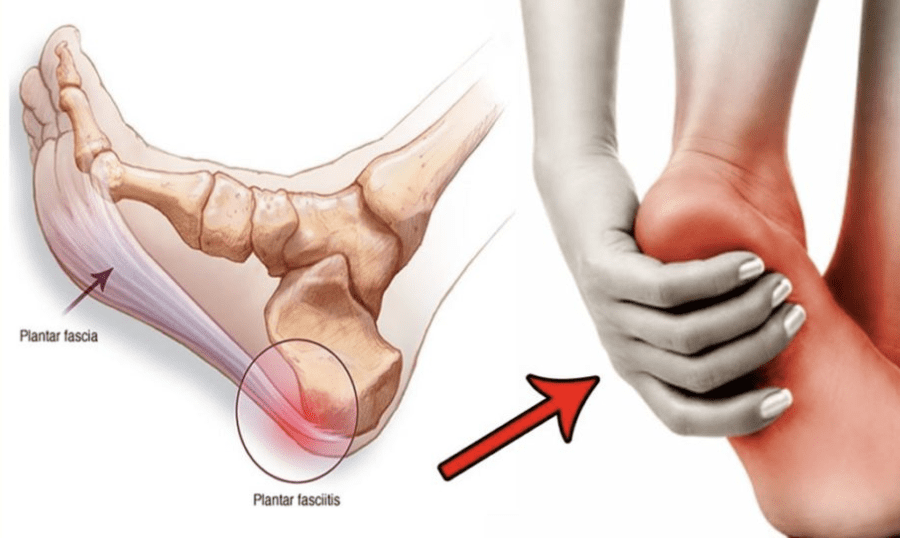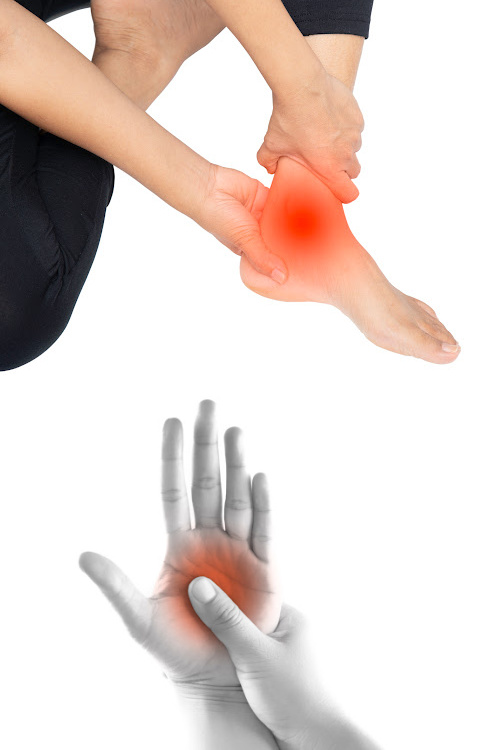Dealing with chronic foot pain can significantly impact your quality of life. Our feet are essential to our everyday routines, and any discomfort that interferes with their function can throw off our daily activities. Many people try to manage foot pain on their own by resting, or using over-the-counter medications.
Why Foot Pain Worsens Over Time?
Foot Structural Changes Over Time
As we age, our feet can experience structural changes, such as fallen arches or bone spurs, which can lead to increased foot pain. These changes may result from genetics, past injuries, repetitive strain from certain activities, or improper footwear. Additionally, pain may cause changes in your gait, putting added stress on different parts of the foot and exacerbating the discomfort.
Underlying Medical Conditions
Conditions Linked To Persistent Foot Pain
Plantar fasciitis involves chronic pain in the plantar fascia, a band of tissue that runs from the toes to the heel along the bottom of the foot. This condition is often caused by repetitive strain, such as prolonged standing or running.
Over time, inflammation or damage to the plantar fascia can result in worsening pain in the heel and arch pain. Plantar fasciitis involves chronic pain in the plantar fascia, a band of tissue that runs from the toes to the heel along the bottom of the foot.
Peripheral Neuropathy
Peripheral neuropathy impacts the nerves in the feet, causing tingling, numbness, and pain. As the condition progresses, nerve damage can worsen, leading to increasing symptoms. This condition is often associated with other health issues, such as diabetes, vitamin deficiencies, or autoimmune disorders, which may require medical management to prevent further nerve damage.
Rheumatoid Arthritis
Rheumatoid arthritis can lead to chronic pain and stiffness in the feet. If untreated, this inflammatory condition can cause joint damage, leading to worsening symptoms over time. Additionally, complications like peroneal nerve dysfunction can arise, contributing to further discomfort and difficulty with movement.
Osteoarthritis
Factors That Worsen Foot Pain
In addition to underlying medical conditions, certain lifestyle habits can contribute to increased foot pain:
- Smoking and excessive alcohol consumption: These habits can reduce blood flow to the feet, limiting the delivery of oxygen and nutrients to tissues and joints. This can increase inflammation and exacerbate pain.
- Insufficient exercise: Insufficient physical activity can weaken muscles, putting extra strain on the feet and worsening existing pain.
- High heels: High heels place significant pressure on specific areas of the feet, which can lead to inflammation and more intense pain over time.
- High-impact activities: Activities like martial arts or other high-impact exercises can put substantial stress on the feet, potentially leading to tissue and joint damage, and intensifying pain.
- Uncontrolled blood pressure or cholesterol: High blood pressure and cholesterol levels can impair blood flow to the feet, increasing the risk of neuropathy and associated pain.
- Prolonged sitting: Sitting for long periods can result in poor circulation to the feet, which can contribute to worsening pain.
- Walking barefoot on hard surfaces: Walking without adequate foot support on hard surfaces can strain the feet, causing pain and inflammation.
- Ill-fitting shoes: Wearing shoes that are too tight or lack proper support can lead to discomfort and contribute to increased foot pain over time.
When To Seek Medical Attention
While minor foot pain that improves with rest and home care may not need medical attention, there are times when it’s important to consult a healthcare professional. Consider reaching out to a provider if you experience any of the following:
- Persistent pain: If your foot pain doesn’t improve with self-care measures.
- Recurring pain: If the pain frequently returns.
- Changes in appearance: If you notice any changes in the color or shape of your foot.
- Accompanying symptoms: If your pain is accompanied by symptoms such as fever or nausea.
- Recent injury: If you’ve recently injured your foot.
- Underlying conditions: If you have conditions such as diabetes or are taking steroids.
Conventional Approaches To Treating Chronic Foot Pain
If chronic foot pain is getting worse, your healthcare provider may recommend various treatment options to address the underlying cause. These may include:
- Orthotics: Custom-made shoe inserts designed to offer support and relieve pain in specific areas of the foot.
- Casts: In more severe cases, your provider may recommend immobilizing your foot with a cast to help tissues and joints heal properly.
- Physical therapy: Physical therapy can play a crucial role in improving the strength, flexibility, and mobility of your feet, helping to reduce pain.
- Prescription medication: Your provider may prescribe medication to manage pain and inflammation, which may include nonsteroidal anti-inflammatory drugs (NSAIDs) or corticosteroids.
- Surgery: Surgery may be considered if other treatment options do not provide relief. It can help correct underlying issues or relieve pressure on specific areas of the foot causing pain.
How NextPain Care Treats Chronic Foot Pain
We Manage Chronic Foot Pain At NextPain Care

Plantar Fasciitis Pain Treatment
NextPain Care provides pain management for plantar fasciitis, focusing on improving mobility and offering lasting relief from chronic heel pain through personalized...

Peripheral Neuropathy Treatment
Peripheral neuropathy is a condition that can cause severe pain, impacting daily life. At NextPain Care, we use evidence-based practices to provide relief from the painful symptoms of peripheral neuropathy, adhering to the highest standards set by medical...

Rheumatoid Arthritis Pain Treatment
Rheumatoid arthritis can be a debilitating and painful condition that causes swelling, joint damage, and immobility. NextPain Care offers a comprehensive approach to treating the pain associated with rheumatoid arthritis and the condition itself. We aim to...
Prevent Foot Pain From Worsening Over Time
Tired of achy feet? Get the knowledge you need to find relief.

